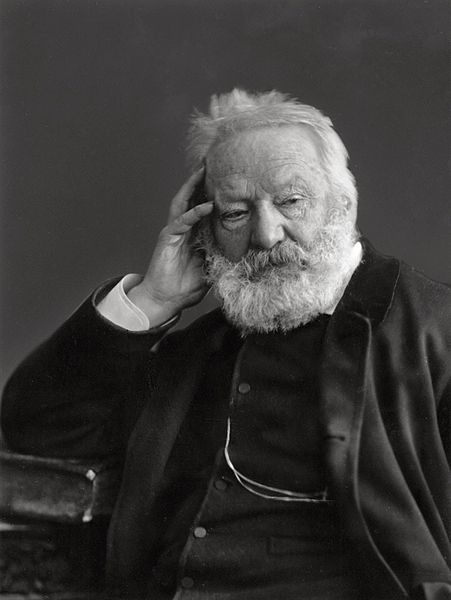
Remembering Victor Hugo
Victor Hugo (1802 – 1885) is well known for his French historical novel Les Misérables, and the well-known stage adaptation of his novel. The musical was originally written in French by Claude-Michel Schönberg, Alain Boubil and Jean-Marc Natel and staged in 1980.
Family And Early Career
Born on 26th February 1802, Hugo was a French poet and playwright of the Romantic Movement in 19th century France, novelist, statesman and human rights activist. He was the third son of Joseph-Léopold-Sigisbert Hugo, a major and, later, general in Napoleon’s army. His father was from north-eastern France whilst his mother, Sophie Trebuchet, was a Breton.
Victor Hugo’s childhood was marked by his father’s constant traveling with the imperial army and by the disagreements that eventually alienated his parents from each other. Hugo studied law between 1815 and 1818, though he never committed himself to a career in the field. With encouragement from his mother, he instead embarked on a career in literature. In 1822, he married Adele Foucher (1803 – 1868) and they had five children.
Early And Most Famed Works By Victor Hugo
Hugo’s first novel Han d’Islande (‘Han of Iceland’) was published in 1823. Five volumes of his poetry appeared between 1829 and 1840. His first serious work was the 1829 short story The Last Day of a Condemned Man.
When Napoleon III took absolute control of France in 1851, he abolished their democratic system of government and Hugo was forced into exile. From 1851-1870 he spent time in Guernsey where he was to write some his finest and most famous works, including Les Misérables and The Toilers of the Sea.
Hugo was inspired by François-René de Chateaubriand, the founder of Romanticism in French literature. In France, he is most revered for his poetry followed by his novels and dramas. Some examples of his outstanding poetry are Les Contemplations and Les Legende des Siecles. His most popular novels are Les Misérables (1862), Notre-Dame de Paris (‘The Hunchback of Notre Dame’) published in 1831 and ‘Les Travailleurs de la Mer’ (Toilers of the Sea) in 1866.
Hugo wrote Les Misérables to make sense of a life lived during a challenging time. The 19th century France he experienced was known for divisive politics, a deadly pandemic and disruptive technology. His work explores the political and social issues of his time and his books have been translated to several foreign languages. He also had wider artistic talents and developed a hobby into producing more than 4,000 beautiful drawings.
Activism
From early in his life, Hugo showed a strong commitment to raising awareness of social justice issues and giving a voice to the disadvantaged. Hugo shared his views on a number of issues and matters close to his heart; including equality. Here are some of the quotes he made during his lifetime:
On marriage: “Ladies, a second piece of advice–do not marry; marriage is a graft; it may take hold or not. Shun the risk.”
On love: “Love is like a tree: it grows by itself, roots itself deeply in our being and continues to flourish over a heart in ruin. The inexplicable fact is that the blinder it is, the more tenacious it is. It is never stronger than when it is completely unreasonable.”
On equality: “Equality does not mean that all plants must grow to the same height – a society of tall grass and dwarf trees, a jostle of conflicting jealousies. It means, in civic terms, an equal outlet for all talents; in political terms, that all votes will carry the same weight; and in religious terms that all beliefs will enjoy equal rights.”
After a literary career that spanned more than sixty years, Victor Hugo is now considered to be one of the greatest French writers of all time, a real icon of of his nation’s culture and literature.